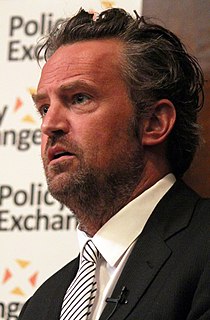A Quote by W. Bruce Cameron
I don't think my father considered allowing a teenager to follow his dreams was necessarily good parenting, or even parenting. I think he thought I was a teenager with teenage impulses. I'm pretty sure he knew that if he just let me follow those impulses, it would wind up being very expensive and perhaps even life-endangering.
Related Quotes
I think parenting is one of the most important jobs, because you can hit two or three generations with the values in your house and the traditions you establish. But I don't think I'm very good at it, and I don't know anybody who thinks they're very good at it. Probably almost everyone gets an A in grandparenting, but in parenting, if you get a B- you're doing pretty good.
At 15 [my father] revolted against his father like any teenager, and said, "I'm out of here! What are you doing to me?" He thought he wouldn't be involved in that kind of stuff for the rest of his life. He just wanted to make money. He was one of those people who took over the family responsibility. His own father was pretty irresponsible with money and borrowed from people all the time.
The first idea of Captain Fantastic was a pretty radically different one. The genesis had to do with parenting and questions about parenthood and fatherhood specifically. I have two kids and I was grappling with what my values were and what I wanted to pass to my children. So I was positing different kinds of parents and different ways of parenting. I played with various ideas - very permissive parenting, very restrictive parenting and then I came up with the character of Viggo Mortensen, and much of it was aspirational, some of it was autobiographical.
Happiness is not always through success. Equally, the constant pursuit of success is sure unhappiness. But we have to find the balance. My own thoughts are that parenting is very personal. And we all feel enormous insecurity about parenting. What are they going to think of us 20 years down the line?
Jesus offered a single incentive to follow himto summarize his selling point: 'Follow me, and you might be happy-or you might not. Follow me, and you might be empowered-or you might not. Follow me, and you might have more friends-or you might not. Follow me, and you might have the answers-or you might not. Follow me, and you might be better off-or you might not. If you follow me, you may be worse off in every way you use to measure life. Follow me nevertheless. Because I have an offer that is worth giving up everything you have: you will learn to love well.'
Very often, I confess, the teller of dreams bores me. His dream could perhaps interest me if it were frankly worked on. But to hear a glorious tale of his insanity! I have not yet clarified, psychoanalytically, this boredom during the recital of other people's dreams. Perhaps I have retained the stiffness of a rationalist. I do not follow the tale of justified incoherence docilely. I always suspect that part of the stupidities being recounted are invented.
The criminal law has, from the point of view of thwarted virtue, the merit of allowing an outlet for those impulses of aggression which cowardice, disguised as morality, restrains in their more spontaneous forms. War has the same merit. You must not kill you neighbor, whom perhaps you genuinely hate, but by a little propaganda this hate can be transferred to some foreign nation, against whom all your murderous impulses become patriotic heroism.



































